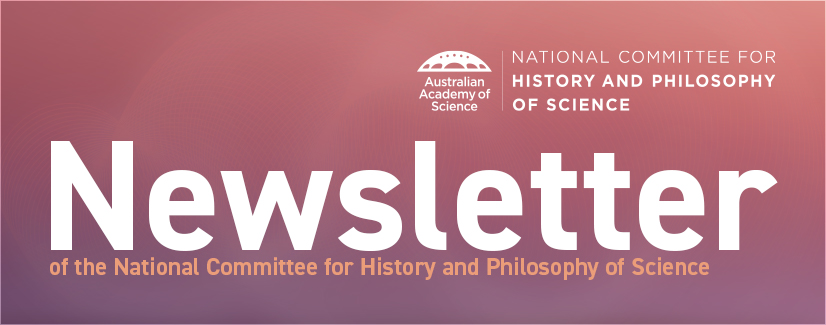
The Newsletter of the National Committee for History and Philosophy of Science (NCHPS) highlights news, opportunities and events relevant to the diverse fields of interest that occupy the discipline of history and philosophy of science.

Dr Martin Bush
AAHPSSS President
The year 2025 has been concerning for science. Around the world, grant funding, especially for basic research, continues to be tight. Some governments have implemented new public interest tests to justify continuing – or pulling – specific projects. Questions about how the science – and science studies – community should respond have been ever-present.
These challenges invoke history and philosophy of science (HPS) in at least three different ways. Firstly, almost everyone agrees that publicly funded science has some responsibility of justification. This lies in the domain of science communication. Secondly, from a different angle, how scientific experts should engage in democratic processes is a major concern of science and technology studies (STS). Thirdly, there is the consideration of how science policy shapes the outcomes of research.
The last of these has been of increasing concern to the new field of metascience, which explicitly attempts to use the insights of other HPS disciplines to reform current scientific practices, and is taken up by Fiona Fidler.

Professor Fiona Fidler
Head of HPS Program, University of Melbourne
The last year has been a busy time in metascience. A July editorial in Nature introduced the newly formed global Metascience Alliance as an indicator that the “community has reached critical mass”. A recent metascience conference in London had over 850 participants from 65 countries. Participants included HPS and STS scholars, as well as scientometrics and science policy researchers and many scientists with methodological interests. An opening address by the UK Minister of State for Science, Research and Innovation focused on the 12-month anniversary of the UK Metascience Unit, now embedded in the Department for Science, Innovation and Technology. This unit experiments with new models for more equitable and efficient distribution of science funding, and investigates metrics for research evaluation and the incentives and research culture they help create.
Both UK Research and Innovation (UKRI) and the Volkswagen Foundation have run dedicated funding schemes for ‘research on research’, and dozens of metascience research labs around the world have formed over the past few years and are actively responding to these calls. For a community that first branded itself ‘metascience’ in only 2019, this is extraordinary growth.
In Australia, metascience is thriving and well-integrated with HPS. It is one of the major research streams of HPS at the University of Melbourne. The Association for Interdisciplinary Meta-Research and Open Science (AIMOS) was also founded in Australia in 2019 and is a member of the steering committee of the global Metascience Alliance.
AIMOS coordinates an annual conference and is increasingly engaged with science policy, especially related to science funding. AIMOS members contributed to the Research Quality Steering Committee convened by the National Health and Medical Research Council (NHMRC), focused on improving rigour, transparency and reproducibility in medical research. AIMOS also submitted feedback on the Australian Research Council (ARC) discussion paper outlining the overhaul of the National Competitive Grants Program. The ARC aims to release its final plans for new funding schemes this year, and monitoring and evaluating the impact of these changes on, among other things, the structure of research teams and industry partnerships, and the nature of curiosity-driven research, will be interesting metascientific work.
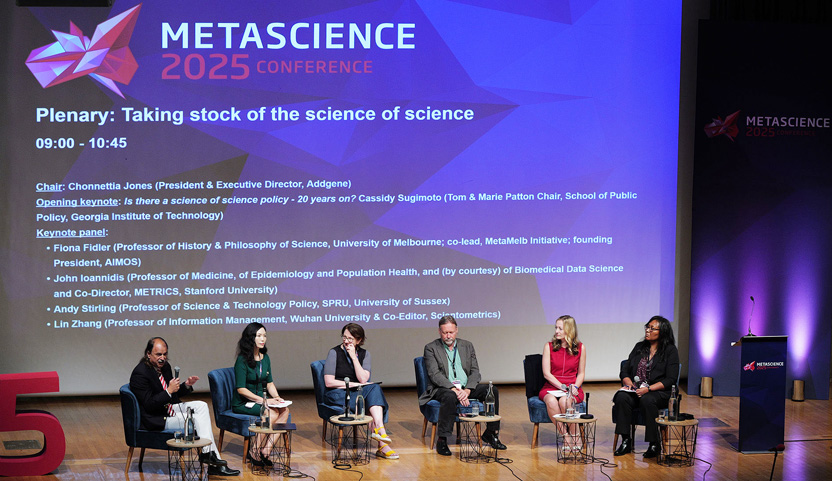

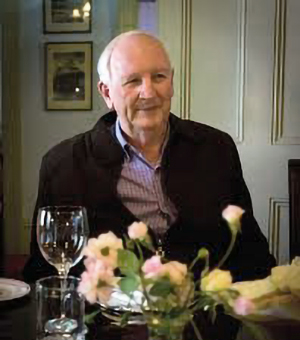
Emeritus Professor Rod Home was recently awarded the 2025 Koyré Medal by the International Academy of the History of Science. This is a lifetime award based on Rod’s groundbreaking work on the history of science in Australia, especially in the physical sciences, as well as his leadership in HPS in the scholarly community.
Professor Home was Head of the History and Philosophy of Science department at the University of Melbourne and long-time editor of the journal Historical Records of Australian Science. This award was announced at the recent International Congress of History of Science and Technology (ICHST) in Dunedin.
The International Congress of History of Science and Technology was recently held at Otago University. More than 500 academics gathered in person, with nearly as many participating online, providing an unparalleled opportunity for historians of science and other science scholars from the region, and indeed many Australian HPS scholars and scientists were present. The next Congress will be in Paris in July 2029.
The Australia/New Zealand Philosophy of Biology workshop held its third annual event in June 2025, in Mittagong NSW. The early career researcher (ECR) focused workshop brought together about 30 participants from across Australia and New Zealand, with 18 talks and three ECR workshops. The next workshop will be held in June 2026 in Mittagong. Philosophers of biology working in or visiting the Australia/New Zealand region, especially ECRs and HDR students, are encouraged to participate.
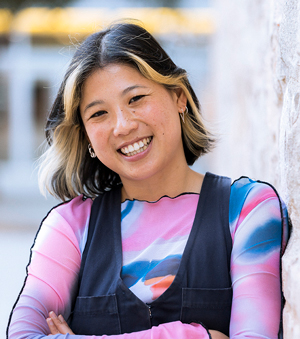
HPS-related projects have been successful in recent rounds of ARC Fellowships and projects. Samuel Baron from the University of Melbourne was awarded a Future Fellowship for the project ‘New Causal Foundations for Space and Time’ to start in 2026. Andrew Latham at the University of Sydney was awarded a DECRA Fellowship for the project ‘Understanding Psychological Impossibility’, starting late 2025. Thao Phan at the Australian National University was awarded an ARC Discovery Project on ‘The Australian Experience of Automated Advertising’ led by colleagues at the University of Queensland, starting late 2025. Timothy Neale and Christopher Mayes at Deakin University were awarded an ARC Discovery project on ‘Embedding Net Zero Carbon Emissions in Northern Australia’ to start in 2025.
Dr Thao Phan’s work researching algorithmic culture and its impacts on how we understand contemporary racial formations has won the 2025 Max Crawford Medal, Australia’s most prestigious award for early career scholars in the humanities. Dr Phan’s research has significantly advanced debates on race, gender and algorithmic culture, uncovering the often-opaque ways platforms like Meta and Google use our data to influence us.

Dr Joel Barnes from the University of Queensland and Dr Jess Urwin from the University of Tasmania are the recipients of the Australian Academy of Science’s 2025 Moran Award for History of Science Research.
The award is supporting Dr Barnes to research the work of the influential Sydney primary school teacher Margaret Simpson, while Dr Urwin’s project seeks to account for the role played by key figures in Australian science in Australia’s searches for, exploitation of, and attempts to export radioactive materials in the mid-20th century.
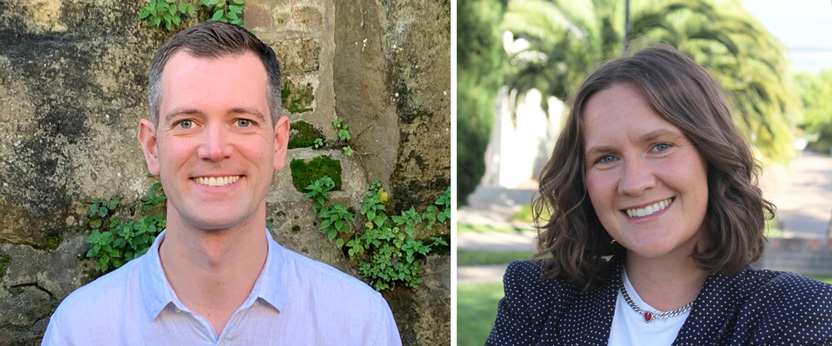
The Academy welcomes Associate Professor Ruth Morgan, who has joined Historical Records of Australian Science as co-editor with Professor Ian Rae. Associate Professor Morgan is succeeding Dr Sara Maroske in the role. We thank Dr Maroske for her many years of service to the journal and wish her all the best.
Ten objects from the MS095 Duffield collection have been on loan to CMAG’s current exhibition Outer Space: Stromlo to the Stars in Canberra. The partnership has resulted in further research and digitising of the Academy archives. The exhibition is open until 16 November 2025, with facsimiles to then join a travelling exhibition to Tasmania and South Australia. Find out more about the Academy’s involvement in the exhibition.
Read all the latest news from the Academy.

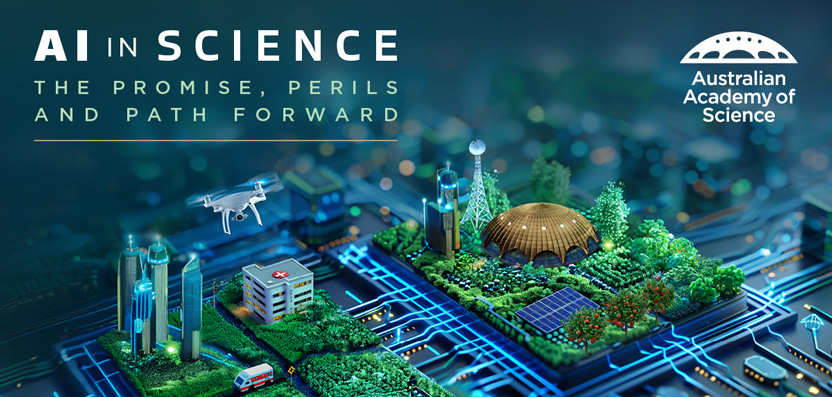
14 October 2025
The AI revolution is transforming how we stay safe, combat crime and protect our national security – both online and in the real world. From cyber warfare to surveillance to deepfakes, this brave new AI world has the potential to cause seismic shifts in global power structures. Two expert speakers will explore the emerging tech reshaping our world.
9 December 2025
From predicting protein structures to analysing complex data, AI is profoundly changing way scientists work and generate new knowledge. Experts will discuss how AI is accelerating innovation, the opportunities and challenges it presents, and what this means for trust in science.
Australia’s science sector gathered at the Shine Dome in early September to celebrate and honour outstanding achievements in science. As part of the four-day event, the 2025 National Symposium saw the launch of ‘Australian Science, Australia’s Future: Science 2035’, a policy initiative from the Academy that examines whether Australia has the national science capability to meet the challenges of the next decade.
Watch the event recordings
Find out more about Australian Science, Australia’s Future
19–21 November 2025, University of Sydney
3–5 December 2025, University of Queensland
9–11October 2025, University of Luxembourg
Submissions closed, hybrid participation possible
13–16 July 2026, University of Edinburgh
Submissions open to 1 December 2025
4–6 November 2026, Te Herenga Waka – Victoria University of Wellington
Submissions open early 2026
Dr Kate Lynch (University of Sydney) and Dr Christopher Lean (Macquarie University) are giving the Alan Saunders Lecture on Thursday 23 October in the Eugene Goossens Hall at ABC Studios, Sydney. The Alan Saunders Lecture is organised in association with the Australasian Association of Philosophy and the ABC with the aim of facilitating philosophy to the wider public. It is held in recognition of Alan Saunders – a journalist, philosopher and broadcaster at the ABC.

Submissions are invited on the writings of women in the 18th and 19th centuries pertaining to physics, construed broadly. Submissions open to 10 October 2025.
The Australian Academy of Science is seeking applications for ordinary membership of its 19 National Committees for Science, including the National Committee for History and Philosophy of Science. Applications are open to active scientists, researchers and professionals from across the Australian scientific community. Membership should represent a broad range of institutions, disciplines and career stages. The Academy values diversity and inclusion and encourages applications from all interested individuals.
Applications may be made through the Academy’s portal before 5:00pm AEST Tuesday, 30 September 2025. Any questions about the role of National Committee members or the application process should be directed to nc@science.org.au.

The HPS Podcast, based at the University of Melbourne, was awarded the 2024 Ayrton Prize for digital engagement from the British Society for the History of Science.
Now into its fifth season, primary hosts Samara Greenwood and Thomas Spiteri have interviewed leading academics from Australia and around the world, making the insights from HPS scholarship relevant and accessible to a broad audience.
© 2025 Australian Academy of Science